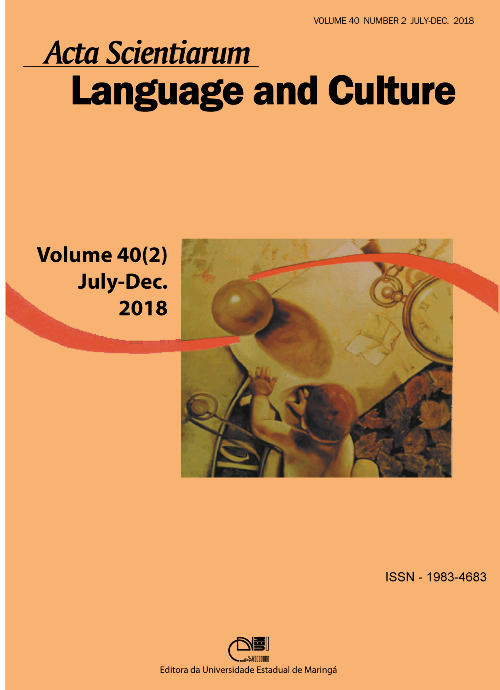<b>Euphemism: The commonplace of advertising culture
Resumo
Politeness is a concern and necessity in advertising because of sensitization goals to be achieved in the midst of cultural, legal and competitive challenges. Thus, this study examined the utilization of euphemistic devices that facilitate mild persuasion in advertisements. Ten advertisements served as the data of investigation. The theoretical explication rested on Barthesian denotative and connotative annotations and Halliday’s transitivity concepts. The study revealed concealments in forms of the socio-cultural affiliation and association (solo), domination (power, the Hero), distinction (made of more), and superiority (Indomitables). Also, personification and personalization (bigger boy; your world), self-worth (greatness), borrowing (Naija), and transfer of professional meaning (credit card) functioned as replacements for seemingly inappropriate lexicons. Advertisers hide behind the metaphor (a taste of black), discrimination (choose greatness), and comparison (more, bigger) to expedite recipients’ response. Therefore, as euphemisms are everyone’s linguistic behavior, the study suggested that their analyses and applications need to follow a similar course. That might assist language users to curb communication crises.
Downloads
DECLARAÇÃO DE ORIGINALIDADE E DIREITOS AUTORAIS
Declaro que o presente artigo é original, não tendo sido submetido à publicação em qualquer outro periódico nacional ou internacional, quer seja em parte ou em sua totalidade.
Os direitos autorais pertencem exclusivamente aos autores. Os direitos de licenciamento utilizados pelo periódico é a licença Creative Commons Attribution 4.0 (CC BY 4.0): são permitidos o acompartilhamento (cópia e distribuição do material em qualqer meio ou formato) e adaptação (remix, transformação e criação de material a partir do conteúdo assim licenciado para quaisquer fins, inclusive comerciais.
Recomenda-se a leitura desse link para maiores informações sobre o tema: fornecimento de créditos e referências de forma correta, entre outros detalhes cruciais para uso adequado do material licenciado.




















6.png)









